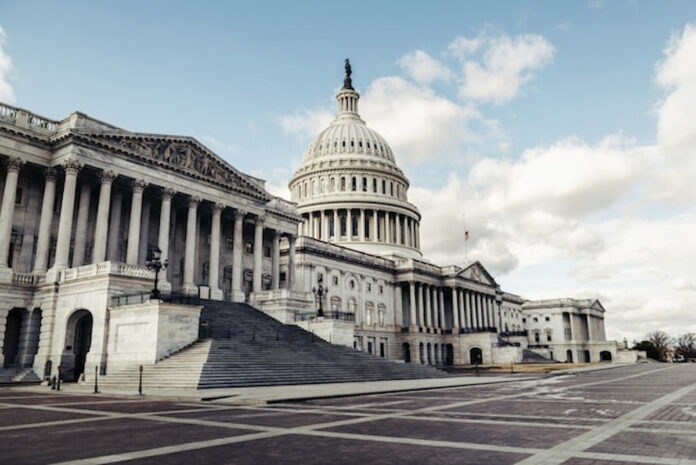While President Trump’s sweeping “One Big Beautiful Bill Act” has sparked heated debate over topics such as cuts in Medicaid, a lesser-known provision of the Senate’s version could have a significant impact on recreational and professional gamblers.
Unlike the House version passed in May, the Senate’s bill proposes capping gambling loss deductions at 90% of the annual losses. That’s a sharp departure from the current law, which allows gamblers to deduct 100% of their losses up to the amount of their total winnings.
If enacted, this change could lead to scenarios where individuals owe thousands in taxes despite breaking even or ending the year at a net loss.
New Deduction Cap Explained
Under current tax law, gamblers can deduct losses (and related expenses for professional gamblers) up to the amount of their winnings. That prevents individuals from paying taxes on lost profits, as long as they provide proper records.
The Senate’s version of the One Big Beautiful Bill Act would limit the deductions to 90% of the gambling losses incurred.
That means, for example, if you win $100,000 but end up losing the entire amount. Currently, you would pay zero tax. However, under the new proposal, you can only deduct $90,000 (90% of your $100,000 in losses), leaving you with $10,000 in taxable income.
That means you owe approximately $2,400 in taxes, even though you did not make a profit.
The Proposal Could Lead To Substantial Losses for Gamblers and Operators
As professional poker player Phil Galfond explains on X, the Senate proposal will hit professional gamblers especially hard, as they typically operate with high volume.
Galford gives an example. If a professional gambler’s total wins for the year are $5.2 million and their total losses are $5 million, they currently pay tax on the $200,000 profit.
However, under the new proposal, they would pay tax on 10% of the $5 million in losses, plus on the $200,000 in net winnings. That amounts to $700,000. Instead of $200,000 in real taxable income, the professional would pay taxes on $700,000 in taxable income.
Galford insists that if this Senate provision passes, many gamblers will opt for offshore, illegal operators.
This would result in lost taxable revenue for the federal government and states. At the same time, those who opt to visit offshore sites won’t be protected by US consumer protection laws or responsible gaming tools.
Experts warn that this change could lead to substantial losses for the gambling industry. That’s because many recreational gamblers could stop gambling or reduce the amount they spend at regulated gambling establishments or online platforms.
The proposal also comes at a time when many states are raising taxes for gambling operators. For example, Illinois recently voted to tax sportsbooks for every bet placed on their platform. That has led to some, including FanDuel, DraftKings, and most recently Fanatics, to add a surcharge to customers.
Current Tax Structure for Gambling
Under US tax law, individuals are required to report all gambling winnings as taxable income. That includes winnings without a W-2G form.
Casinos and other gambling establishments issue W-2G forms for certain gambling winnings. That includes $1,200 or more from slots or bingo, $1,500 or more from keno, and $5,000 or more from poker tournaments.
The federal tax rate for gambling winnings is 24% on large wins. However, individuals must report even small wins that often result in no tax withholding.
Taxpayers can deduct gambling losses to offset the taxes owed. However, losses are deductible up to the total amount of winnings.
For example, you win $10,000 but lose $15,000. You can deduct up to $10,000 of your losses, bringing your taxable income to zero. The other $5,000 in losses are not deductible, and you cannot carry them over to the next tax year.
Also, out-of-pocket expenses, such as transportation, meals, and lodging, are not deductible unless you qualify as a gambling professional. While professional gamblers can add out-of-pocket expenses, these combined with losses cannot exceed total gambling winnings.
It’s also important to know that to claim gambling deductions, you must keep detailed records including:
- The date and type of gambling activity.
- The name and address, or location, of the gambling establishment.
- The names of other persons (if any) present with you at the gambling establishment.
- The amount won or lost.
- Supporting documentation (W-2G forms, betting tickets, receipts, statements, etc.)
Bill’s Status in Congress
The Senate passed the bill on July 1 with a 51-50 vote, with Vice President JD Vance providing the tie-breaking vote. Three Republican Senators, Maine’s Susan Collins, North Carolina’s Thom Tillis, and Kentucky’s Rand Paul, sided with the Democrats.
The bill now returns to the House for debate and a vote on the Senate’s amendments. That includes the provision for a 90% deduction cap on gambling losses.
It will likely be referred to a conference committee. Lawmakers from both chambers will negotiate the differences between the two versions before sending a final version back for approval.
However, time is running out. President Donald Trump has set a July 4 deadline to pass the bill. Therefore, if the Senate’s provision remains intact, the bill could significantly reshape the tax landscape for gamblers in the US.












